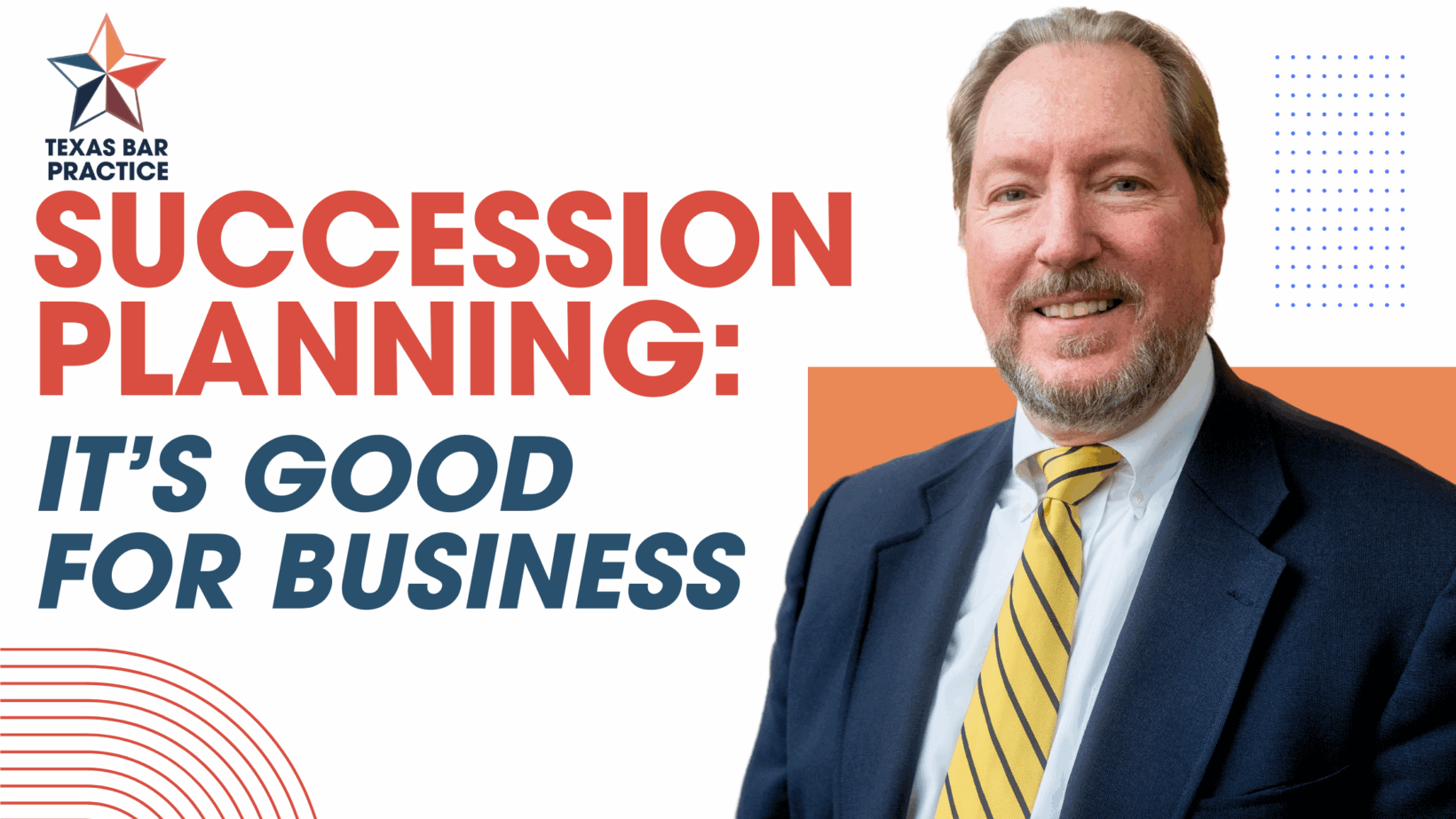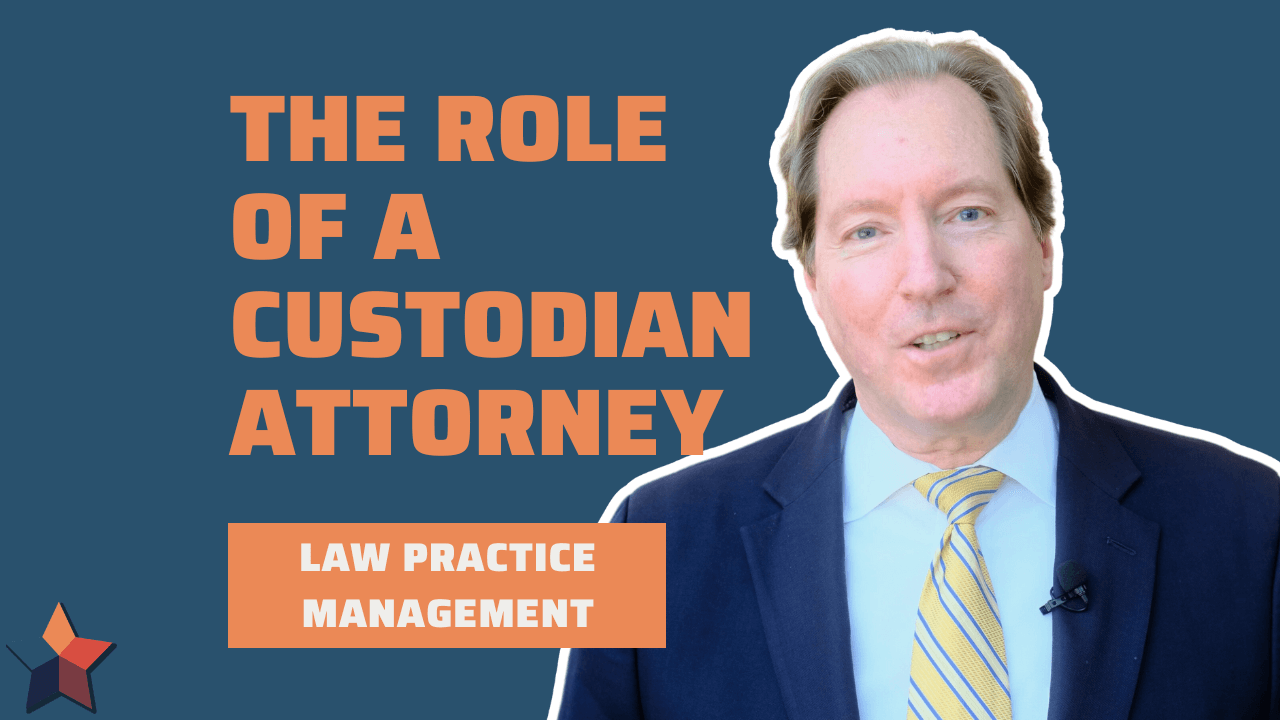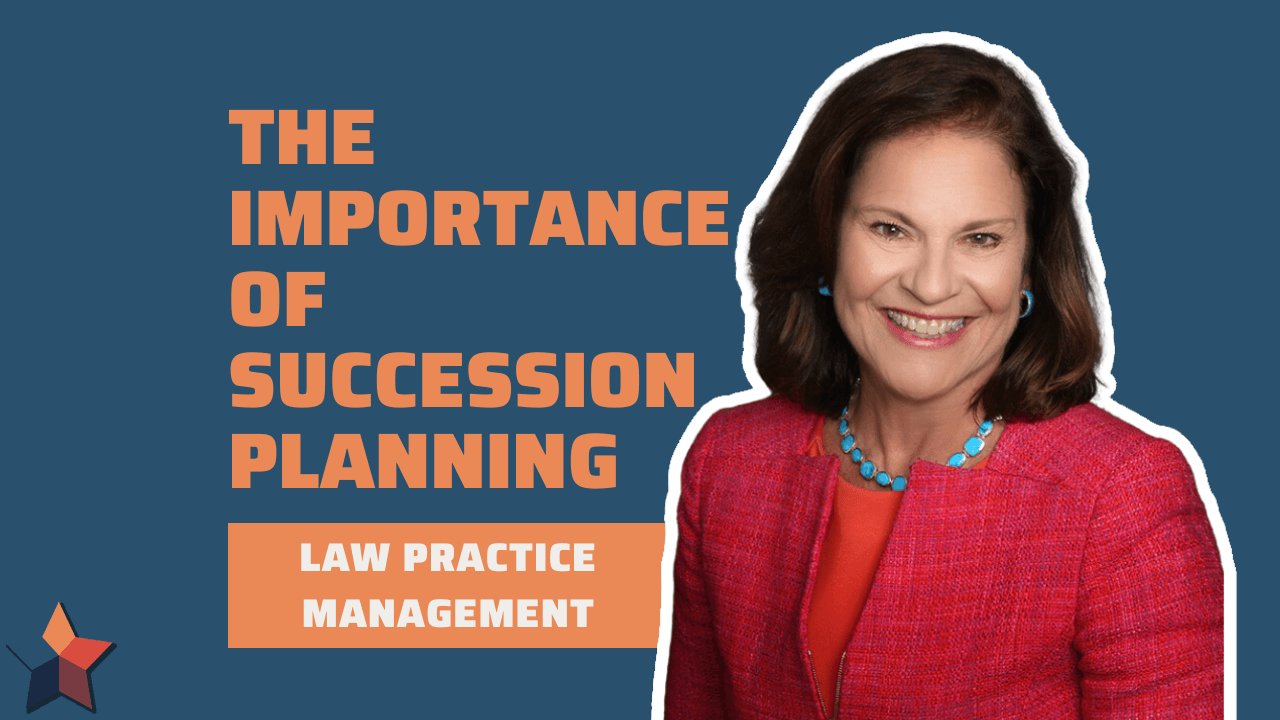Succession Planning |Succession PlanningThe Succession Planning Toolkit, 2nd EditionWritten byThe LPM DepartmentNovember 25, 2024Share this PostThis Succession Planning Toolkit provides the information lawyers need to successfully plan an easy transition from the practice of law. It is divided into four chapters, or steps, from simple to more complex. Although the Toolkit is designed so that information …
Sudden Cessation of Practice and Custodianships
Succession Planning |Succession PlanningSudden Cessation of Practice and CustodianshipsWritten byThe LPM DepartmentNovember 20, 2024Share this PostTable of Contents TDRP 13 Custodian Guidance Client Files IOLTA Accounts Temporary Cessation Wrapping Up Forms and Resources ⇚ Back The Mechanics of the Texas Rules of Disciplinary Procedure, Part XIII Cessation of practice procedure rests primarily on Texas Rules of …
Transition Planning
Succession Planning |Succession PlanningTransition PlanningWritten byThe LPM DepartmentNovember 20, 2024Share this PostTable of Contents Overview Sales Overview FAQs Rules & Practice Tips Buyer & Seller Checklists Traditional Succession Methods Closing Your Practice Dissolving the Professional Entity Forms and Resources ⇚ Back The goal of transition planning is to enable you to achieve what you perceive to …
Designating a Custodian Attorney
Succession Planning |Succession PlanningDesignating a Custodian AttorneyWritten byThe LPM DepartmentNovember 20, 2024Share this PostTable of Contents TDRP 13.04 Custodian’s Role Designation Portal Custodian Agreement Will & POA Text Checklist Forms and Resources ⇚ Back Designating a custodian attorney is a great place to start. It is quick, easy, and immediately provides for transition if you suddenly …
File Management and Ensuring Password Access
Succession Planning |Succession PlanningFile Management and Ensuring Password AccessWritten byThe LPM DepartmentNovember 20, 2024Share this PostTable of Contents Rules & Ethics Practice Tips Fee Agreement Language Closing Files Password Access Checklist Sample Policy ⇚ Back Managing accrued closed files can be a daunting task if an attorney has not employed file management or file retention and …
Succession Planning: It’s Good for Business [VIDEO]
Designating a custodian isn’t just for emergencies; it’s good business. It protects the value of your practices, ensures continuity of care, keeps your clients safe, and spares your loved ones from the needless legal and financial confusion that could arise.
Succession Planning: The Role of a Custodian Attorney [VIDEO]
In this video, Greg Sampson (2023-2024 Law Practice Management Committee Incoming Chair) identifies the value of succession planning and why it is now more important than ever.
A Closer Look at the Succession Planning Toolkit [VIDEO]
Steve Bolden (Chair of the State Bar of Texas Law Practice Management Committee) highlights the Succession Planning Toolkit and the importance of succession planning for young and older attorneys.
Succession Planning: The Importance of Designating a Custodian [VIDEO]
Join past State Bar of Texas president Laura Gibson as she highlights the importance or designating a custodian.









 LPM Help Center
LPM Help Center